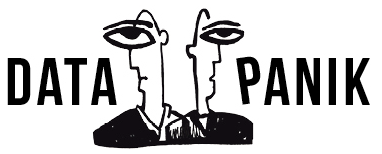Gry Hasselbalch en Pernille Tranberg schreven voor TechCrunch een bijdrage waarin ze nog eens klaar en duidelijk uiteenzetten waarom privacy in dit digitale tijdperk zo belangrijk is. Vandaag zelfs meer dan ooit.
“Our lives are lived in data. Data crossing borders and connected in virtual space. Most often, it appears, we live in open and too easily accessible data networks. States and corporations are watching us through data, and we are watching each other through data. What does individual privacy mean in this data saturated environment?
(…)
In a well-functioning democracy, those in power are open and transparent about how they exercise their power. One should not expect transparency from individuals. The more transparent people are, the more vulnerable they become. With the current digital infrastructure, we are heading in the wrong direction: Individuals are becoming more and more transparent, open to different types of control, manipulation and discrimination, while the powerful — government, industry and organizations — are more and more closed off. Freedom, individual independence and democracy are fundamental reasons why the individual right to privacy is something we should all care about.
(…)
In reality, privacy is empowerment. The fact that we actively use digital media and share details about ourselves does not mean that private life has no value, that it’s no longer a social norm, as Facebook’s Mark Zuckerberg was once quoted as saying. It just means that privacy has new conditions. To have a private life, an image or an identity online is about empowerment. Empowerment means you can decide who knows what about you and when — now and in the future — and that you can exercise control over the outcomes springing from this knowledge.
Privacy is a characteristic unique to the individual. What we choose to disclose or not disclose, and in which contexts, is deeply personal and distinctive to us as separate entities. Privacy is unique to cultures and individuals and, exactly for this reason, it matters. It empowers each of us to act in our own specific capacity.
(…)
Privacy is a democratic value. It is free thought and independence. Studies show that people change their behavior when they feel watched. They seek information less freely, act and express themselves less freely, are afraid to stand out and go against the flow. Trevor Hughes, CEO of the International Association of Privacy Professionals, IAPP, has a good explanation of the importance of privacy: “As humans, we seek solitude when we feel vulnerable. Sometimes, this is related to physical vulnerability. We seek to exclude ourselves from our societies when we are sick, or in moments of particular risk (think: sleeping, toileting, sex, etc.). But we also seek to exclude ourselves when we feel emotionally vulnerable. We seek private space to explore new identities or ideas.”
Privacy and the space to think and act without feeling watched is a prerequisite for individuals’ ability to act independently and freely. A private life ensures that each person can create his or her own unique identity and determine his or her life’s direction — the right to fail along the way or to go against the tide. The right to privacy is thus a prerequisite for active democracy.”

